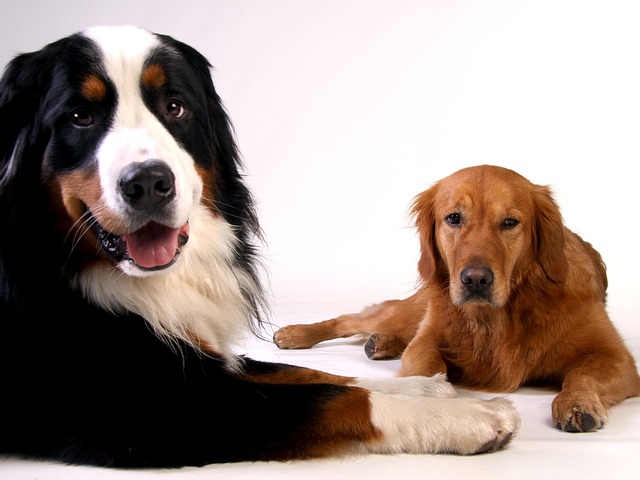
How can I tell if my dog's heatstroke is serious
Let’s be real: It’s a sticky August morning in Los Angeles, and you took your 2-year-old Golden Retriever, Max, for a walk a little later than usual
Do golden retrievers need their teeth cleaned? If you’ve ever caught a whiff of your golden’s breath and recoiled, you’re not alone. These affectionate furballs, known for their soulful eyes and boundless energy, are prone to dental issues that can quickly escalate from a smelly inconvenience to a serious health concern. Understanding your dog’s oral health isn’t just about fresh kisses—it’s a crucial part of responsible pet ownership, especially in regions where animal welfare laws demand proper care.
Golden retrievers, with their soft mouths bred for gently retrieving game, have a unique dental structure. Their broad jaws house 42 teeth that face constant wear and tear from chewing toys, sticks, and anything else they find intriguing. Unlike wild canines whose diets of raw meat and bones naturally scrape plaque away, domesticated goldens often munch on processed kibble that clings to teeth, creating a breeding ground for bacteria. A study by the American Veterinary Dental Society found that 80% of dogs over three years old show signs of periodontal disease, a statistic that rings especially true for goldens due to their tendency to accumulate tartar quickly.
The consequences of neglecting dental hygiene extend far beyond bad breath. Plaque hardens into tartar, which irritates the gums and allows bacteria to seep into the bloodstream. This can lead to kidney, liver, and heart problems down the line. Consider the case of Max, a six-year-old golden retriever whose owner noticed a reluctance to eat and swollen gums. A veterinary check-up revealed advanced periodontal disease, requiring extractions and a costly hospital stay. This scenario underscores the importance of proactive care—and in many U.S. states and European countries, it’s not just a recommendation but a legal obligation under animal cruelty statutes.
 So, how can you keep your golden’s smile bright? Start with at-home care. Introduce toothbrushing gradually, using pet-specific toothpaste (never human products, which can be toxic). Begin by gently rubbing your finger along the gum line, then progress to a soft-bristled brush designed for dogs. Aim for three times a week, though daily brushing is ideal. Pair this with dental chews certified by the Veterinary Oral Health Council (VOHC). Brands like Greenies or C.E.T. chews have been clinically proven to reduce plaque, providing a convenient option for busy owners.
So, how can you keep your golden’s smile bright? Start with at-home care. Introduce toothbrushing gradually, using pet-specific toothpaste (never human products, which can be toxic). Begin by gently rubbing your finger along the gum line, then progress to a soft-bristled brush designed for dogs. Aim for three times a week, though daily brushing is ideal. Pair this with dental chews certified by the Veterinary Oral Health Council (VOHC). Brands like Greenies or C.E.T. chews have been clinically proven to reduce plaque, providing a convenient option for busy owners.
But at-home efforts have limits. Professional cleanings under anesthesia, typically recommended annually for adult goldens, offer a deeper clean. These procedures involve scaling below the gum line to remove embedded tartar and polishing teeth to prevent future buildup. While anesthesia carries risks, modern veterinary practices prioritize safety with pre-procedure blood work and monitoring. In the UK, the Animal Welfare Act explicitly states that pets must receive “appropriate veterinary treatment,” making regular dental check-ups not just good practice but a legal requirement.
Beyond cleaning, diet plays a crucial role. Dry kibble marketed as “dental-friendly” often contains additives to reduce plaque, but it’s not a substitute for brushing. Some owners opt for raw diets, which can mimic the natural dental benefits of wild canine feeding, though this approach requires careful research due to potential risks like bacterial contamination. Interactive toys that encourage chewing, such as Kongs filled with frozen treats, also help keep teeth clean by providing a natural abrasive action.
In the vibrant world of golden retriever ownership, dental care is a thread woven through the fabric of responsible pet parenting. Whether you’re navigating leash laws in New York City or adhering to microchipping regulations in Germany, ensuring your dog’s oral health aligns with legal standards and cultural expectations. By incorporating regular brushing, professional cleanings, and a thoughtful diet, you’ll not only extend your golden’s lifespan but also preserve those heart-melting smiles that make these dogs such beloved companions. After all, a healthy mouth means a happy, tail-wagging life—and isn’t that what every golden retriever owner dreams of?

Let’s be real: It’s a sticky August morning in Los Angeles, and you took your 2-year-old Golden Retriever, Max, for a walk a little later than usual

You're enjoying a summer afternoon at the park when you notice your dog has stopped panting and appears disoriented - their gums are bright red

Let’s paint the picture: You’re in your Denver apartment, watching your 4-year-old Boston Terrier, Ruby, plop down mid-play session with her favorite toy

Many dog owners notice their pets nails seem shorter after regular walks,but how much does this daily activity actually help?The answer depends on where you walk—concrete sidewalks or asphalt streets gently file nails as a dog's paws hit the ground

Most dog owners notice their pup scooting across the carpet at some point, but few connect it to impacted anal glands. These small sacs near a dog’s rectum secrete a scent for marking territory

Most vets agree that regular dog teeth cleaning is key to avoiding painful dental issues later. For healthy adult dogs, a professional cleaning at the vet’s office every 12 to 18 months usually works well.